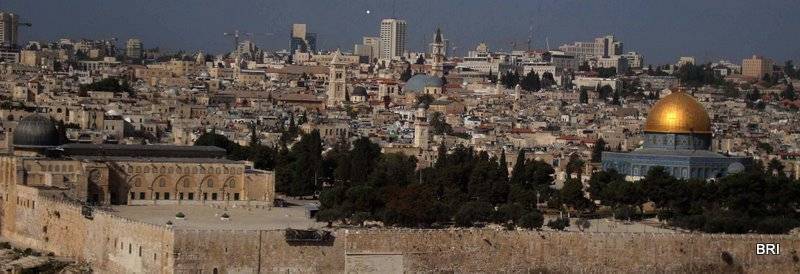READ THE BIBLE ONLINE
Rightly Dividing
the Word of Truth

BEREAN RESEARCH INSTITUTE
DOWNLOAD
FREE SEARCH SOFTWARE
God's Word
the King James Bible
Bible Studies for the Church and for Christian Ministries - BIBLE STUDY ON TOUGH ISSUES
|
|
Antioch and Alexandria
Bible Versions Article - BV.0003
SHARE THIS ARTICLE WITH YOUR FRIENDS and FOLLOW
(Birthplaces of manuscript lines and a key to identifying God's Word)
1. In Acts 13, Saul becomes Paul (vs. 9) and is part of the church at Antioch. (vs. 1) Paul and Barnabus are separated out from the rest "for the work whereunto I have called them", God said. (vs2) They preached in a number of places (nowhere near Egypt) and by verse 49 we learn the keys words, "And the word of the Lord was published throughout all the region." (That phrase is a key to understanding which text is the true word of God).
So, where was the word of the Lord published - Alexandria or Antioch?
2. If we trace the manuscripts back to their origins, there are only two sources for them - Antioch and Alexandria. Text types that represent a time period or location are traceable back to one of two families of manuscripts - the Majority text and the Minority text - the Majority text originating in Antioch, Syria and the Minority text originating in Alexandria, Egypt.
3. The Majority text (literally) includes approximately 99% of the 5,000+ extant manuscripts (meaning manuscripts that are in existence today). These manuscripts include the ones used by the King James Bible translators and they have a high level of agreement with each other. The Minority text (literally) includes the remaining less than 1% of extant manuscripts. These manuscripts include those used by all modern versions and they have a high level of disagreement between each other (For example, Sinaiticus and Vaticanus, the two principal Alexandrian manuscripts by far, disagree with each other in over 3,000 places in the four gospels alone - see chart below).
4. Antioch and Alexandria are as diametrically opposed in character and in fruit as are God and Satan, as are good trees and evil trees (Matt 7:17), and as are fresh water and salt water (James 3:12). Because the bible is our final authority in all matters of faith and practice, let's study what the bible "practice" is regarding Alexandria, Egypt and Antioch. For each section, keep in mind the "law of first mention", a principle wherein the first mention of anything in the bible generally sets the tone for the use of that word throughout the whole bible.
5. So here's the pertinent question. What is the bible practice? If God holds these opinions of Alexandria and Egypt, and he commands his people to not even buy horses from there, then how likely is it that he would want us to get a BIBLE from there? Conversely, would he recommend a BIBLE from Antioch, where "the word of the Lord was published throughout all the region."? (Acts 13:49)
6. Were there manuscripts published in Alexandria? Absolutely. But they were not the words of God. These were manuscripts generated by Origen, founder of a school of philosophy, in Alexandria, Egypt and others of like mind. Origen is perhaps best known for his life's work - the Hexapla, a six column side by side record of the Hebrew old testament with various interpretations of it in Greek.
7. Fragments of the Hexapla are the primary record of the mythical 'Septuagint', which is supposedly a pre-Christian Greek copy of the old testament. There are good reasons why such a document never existed, and speculation that Origen himself produced it about 450 years after its claimed production. Vaticanus, Sinaiticus and Alexandrinus (the three primary manuscripts underlying modern versions) are believed to be copies of columns from Origen's Hexapla.
8. It is possible that these are copies of the 50 bibles ordered by Constantine and produced by Eusebius, a student of Origen's work. Vaticanus was found, and remains secluded, in the Vatican. Sinaiticus was found in a garbage can in a monastery in the Sinai. These works are filled with errors, strike-outs and contradictions, yet they form the basis for what was compiled by Westcott and Hort in their 1881 Greek manuscript that underlies the modern versions. [This study requires an enormous amount of time, but it is important in understanding the foundation upon which today's "bibles" are based. Can anyone honestly believe that: Bad manuscripts = Good Bible??]
9. In summary, the Word of God was published in all of the region around Antioch and was accepted as scripture by early believers when they received it as such (hence "Received Text"). Many fragments of these writings constitute the Majority Text which Erasmus and the King James translators used to compile God's Word. In opposition to this move of God, Origen, Eusebius, the Catholic church, Westcott and Hort, and many others generated and continue to propagate many conflicting accounts of what God's Word says. These deceivers bring into question passages of scripture (Yea, hath God said...? Gen 3:1), add or omit many portions (Rev 22:18), and create confusion with many contrary voices. (... God is not the author of confusion ... I Cor 14:33).
10. But this issue involves much more than just determining which book to read, which bible is the Word of God - a bible from Antioch or one from Alexandria. It involves a crucial matter of the heart - which attitude one should have towards the Word of God - the attitude of believers in Antioch who "cleave" to the Word of God, or the attitude of unbelievers in Alexandria who questioned, changed, corrected, added to, and deleted from, the Word of God.
11. This is a very important issue.
(Credits: We would like to acknowledge the work of Dr. Samuel C. Gipp whose own research provided the basic concept and much of the content for this article regarding God's thinking of the three cities.)
| |||||||||||||||||||||||||||
|
Legal Disclaimer: Terms and Conditions
Salvation | Bible Versions | Sound Doctrine | Endtime | Other Issues | Book Reviews
Home | What We Believe | Contact Us | Audios | Videos Copyright 2006-2017 All Rights Reserved: Mike Wright - Berean Research Institute web design by Centurion Digital: websites@centuriondigital.com
|
| |||
The "Berean Research Institute" is a scripture-based, family-oriented area of cyber-space wherein men, women and children can research beliefs and doctrines that impact their assembly, ministry and/or personal lives. We encourage all to fear God and to keep his commandments by searching the scriptures daily and by being doers of the word. Many people today claim to be Christians, disciples of Jesus, but fail to continue in his word as commanded in John 8:31, and therefore are deceiving even themselves. (James1:22) The result of such deception will be exclusion from the Kingdom of God (Matt 7:21-23 and Matt 25:8-12). Not everyone ... shall enter the kingdom of heaven; but he that doeth the will of my Father which is in heaven. (Matt 7:21) If you consider yourself to be a Pentecostal, Baptist, Catholic, JW, Adventist - even a life-long one - and are convinced that you are on your way to heaven, we encourage you to consider some of the biblical doctrines that we examine in these articles and videos - and be SURE that you are on your way to heaven. That is our ultimate goal for you - that every one of you obtains eternal life!!
|
|||





